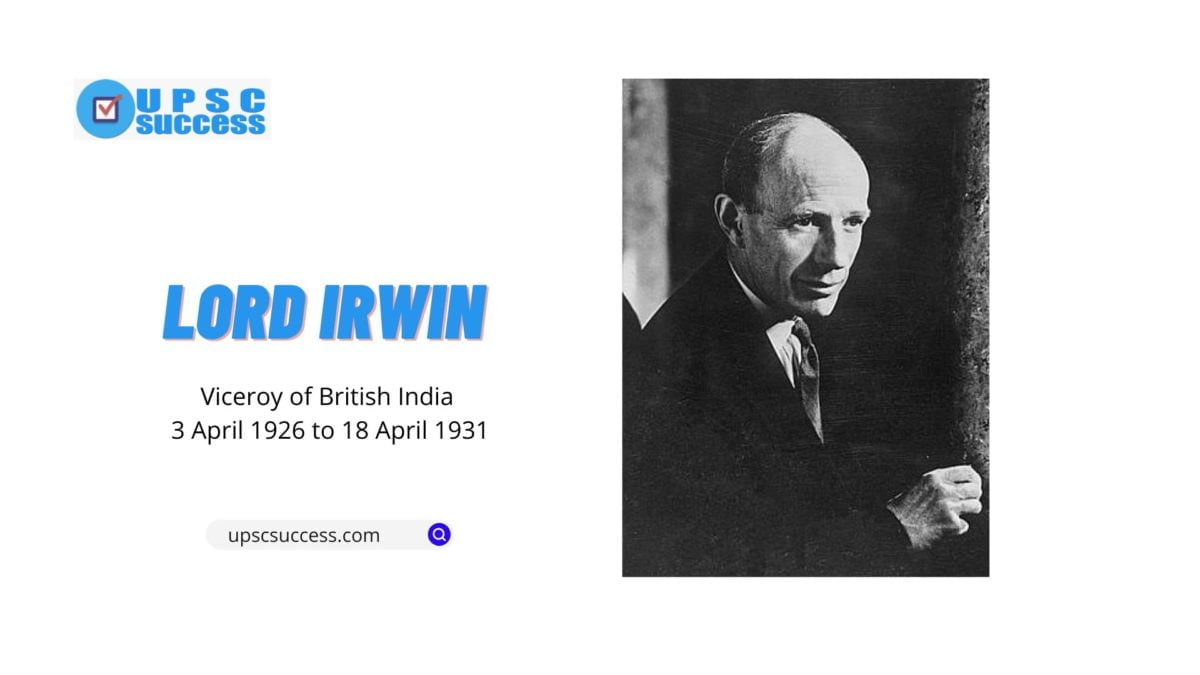Viceroy of British India from 1926 to 1931.
- Simon Commission (1928)
- Nehru Report (1928)
- Jinnah’s 14 Points
- Murder of Saunders in 1929
- Harcourt Butler Indian States Commission
- Demand for Poorna Swarajya in Lahore session
- Dandi March (1930)
- Deepavali Declaration-Irwin
- Sharda act,1929 girls marriageable age 18 & boys 18.
Other important events during Irvin’s time are the Bomb thrown in Assembly Hall in Delhi by Bhagat Singh, the Foundation of HSRA, the Death of Lala Lajpat Rai, the execution of Bhagat Singh, Rajguru and Sukhdev (1931), Chittagong Armoury Raid (1930), Civil Disobedience Movement, Dandi March (1930), First Round Table Conference in London and Gandhi Irwin Pact.
FAQs
Viceroy Lord Irwin announced in October 1929 a vague offer of ‘dominion status’ for India in an unspecified future and a Round Table Conference to discuss a future constitution.
The Gandhi–Irwin Pact was a political agreement signed by Mahatma Gandhi and Lord Irwin, Viceroy of India, on March 5, 1931. It marked the end of a period of civil disobedience (satyagraha) in India against British rule that Gandhi and his followers had initiated with the Salt March.

